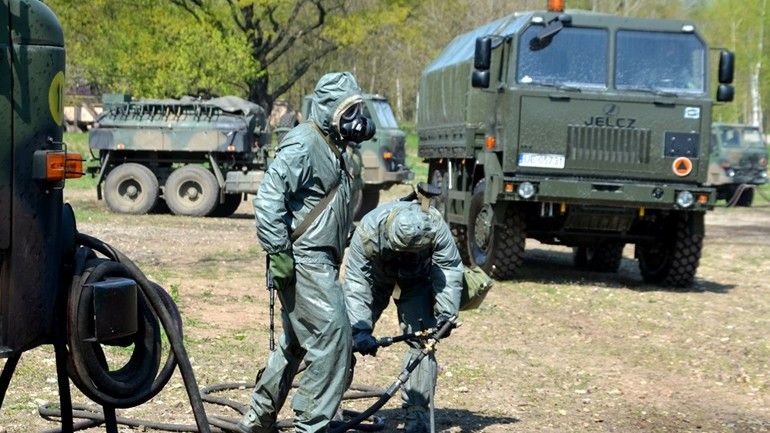Territorial Defence Forces
Polish Army Orders the ODYS System

The Armament Inspectorate of the Polish MoD has published a contract notice which forms a founding point for submission of requests, regarding the inclusion in a procedure, the goal of which would be to carry out a R&D programme, and subsequent delivery of a system for remote detection of biological and chemical contamination, also known under the name of ODYS.
Implementation of a R&D work, within the period between 2017 and 2022, is the subject of the order (first stage of the task). Then the ODYS systems, manufactured on the basis of the technical spec-sheets developed within the first phase, would be delivered, in a number of four packages.
The order may involve the contractors contained within the list of the entrepreneurs playing a critical defence-economic role, who are in possession of proper knowledge, experience, technological potential and credentials. Whereas, there is also an option to have the task executed by a group of companies who remain parties to relevant agreements which would confirm their capacity and legal legitimacy, guaranteeing that the task would be completed.
The Armament Inspectorate expects that up to three Contractors could be involved in the aforesaid procedure (the said number may become even higher, if the contractors involved in the process place offers which would gain identical number of points). Final offer placing deadline expires on 28th April 2017.
Institute of Optoelectronics of the Polish Military University of Technology may become one of the potential contractors. The said body has been, for quite some time now, working on systems for remote detection of biological and chemical contamination. The initial works pertained to remote detection of methane leaks within pipelines, while the technology developed as a result of the said project has found itself in the field of interest of the Army, Police or other national security-concerned organs.
The medium and short range LIDARs developed at the Institute of Optoelectronics were already being utilized during the Euro 2012, and tested at the US Army’s proving ground. Polish Military Institute of Chemistry and Radiometry may act as yet another contractor within the scope of the aforesaid programme.
